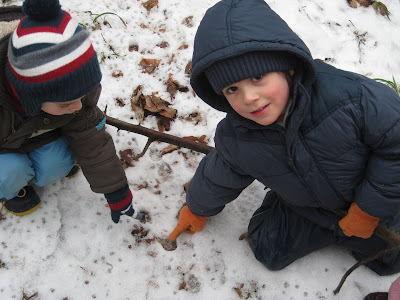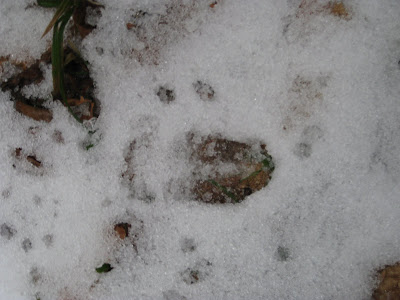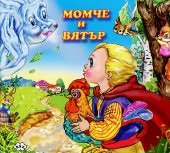Tuesday, January 20, 2009
Footprints from animals in winter - Germany
Monday, January 19, 2009
Blog - Écoles publiques Ploubazlanec & Loguivy-de-la-mer
 You can see more information about SETS-Comenius on the blog "Journal scolaire - Écoles publiques Ploubazlanec & Loguivy-de-la-mer.
You can see more information about SETS-Comenius on the blog "Journal scolaire - Écoles publiques Ploubazlanec & Loguivy-de-la-mer.Click on the link below:
http://ploubazlanec.blogs.letelegramme.com
Saturday, January 17, 2009
SETS - Memory game Cards
Thursday, January 15, 2009
Wednesday, January 14, 2009
National Anthem of Estonia
 Click on the image to enlarge
Click on the image to enlarge
Mu isamaa, mu õnn ja rõõm,
kui kaunis oled sa!
Ei leia mina iial teal see
surre lai a ilma peal,
mis mul nii armas oleks ka,
kui sa, mu isamaa!
Sa oled mind ju sünnitand
ja üles kasvatand;
sind tänan mina alati
ja jään sull' truuiks surmani,
mul kõige armsam oled sa,
mu kallis isamaa!
Su üle Jumal valvaku,
mu armas isamaa!
Ta olgu sinu kaitseja
ja võtku rohkest õnnista,
mis iial ette võtad sa
mu kallis isamaa!
English tranlation
My native land, my joy, delight,
How fair thou art and bright!
And nowhere in the world all round
Can ever such a place be found
So well beloved as I love thee,
My native country dear!
My little cradle stood on thy soil,
Whose blessings ease my toil.
With my last breath my thanks to thee,
For true to death I'll ever be,
O worthy, most beloved and fine,
Thou, dearest country mine!
May God in Heaven thee defend,
My best, my dearest land!
May He be guard, may He be shield,
Forever may He bless and wield
O graciously all deeds of thine,
Thou dearest country mine!
Tuesday, January 13, 2009
Friday, January 9, 2009
National Anthem of Bulgaria
 Click on the image to enlarge
Click on the image to enlargeGorda Stara Planina,
Milo Rodino,
Padnakha bojtsi bezchet,
ENGLISH TRANSLATION
Proudly rise the Balkan peaks,
Oh, dear native land,
Uncounted fighter died
National Anthem of Germany

Click on the image to enlarge
GERMAN LYRICS
Einigkeit und Recht und Freiheit
Für das deutsche Vaterland -
Danach lasst uns alle streben
Brüderlich mit Herz und Hand!
Einigkeit und Recht und Freiheit
Sind des Glückes Unterpfand.
Blüh' im Glanze dieses Glückes,
Blühe, deutsches Vaterland!
Blüh' im Glanze dieses Glückes,
Blühe, deutsches Vaterland!
ENGLISH TRANSLATION
Unity and Right and Freedom
For the German Fatherland!
After these let us all strive
Brotherly with heart and hand!
Unity and Right and Freedom
Are the pledge of happiness.
Bloom in the splendour of this happiness,
Bloom, my German Fatherland!
Bloom in the splendour of this happiness,
Bloom, my German Fatherland!
Thursday, January 8, 2009
National Anthem of France

Click on the image to enlarge
FRENCH LYRICS
Allons enfants de la Patrie,
Le jour de gloire est arrivé !
Contre nous de la tyrannie,
L'étendard sanglant est levé !
L'étendard sanglant est levé !
Entendez-vous dans les campagnes
Mugir ces féroces soldats ?
Ils viennent jusque dans nos bras
Egorger nos fils et nos compagnes !
Aux armes, citoyens !
Formez vos bataillons !
Marchons ! marchons !
Qu'un sang impur
Abreuve nos sillons !
ENGLISH TRANSLATION
Arise children of the fatherland
The day of glory has arrived
Against us tyranny's
Bloody standard is raised
Listen to the sound in the fields
The howling of these fearsome soldiers
They are coming into our midst
To cut the throats of your sons and consorts
To arms citizens
Form you battalions
March, march
Let impure blood
Water our furrows
The Ring Game (Jogo do anel)
Rules of the Game
(Group minimum of 4 children)
- Circle of children with their flat united hands out stretched.
- One child stays in the middle with a ring in between his closed and out stretched hands. This child will pass his hands between the hands of other children and with disguise he'll drops the ring in one of the children's hands.
- At the end of the song the child chooses one of the children to guess where the ring is. If he guesses, he wins and then he goes to the middle, otherwise will be the child who got the ring that goes to the middle of the circle and the game starts again.
Tune – "The pretty ring"
There goes the pretty ring
Goes around without stop
Where is it, where it's found?
Who can guess its spot?
Who can guess its spot,
If you haven't guessed yet,
Where is the pretty ring, That my hand has left?
Wednesday, January 7, 2009
The Day of the Kings (6th January) in France
 In France we eat the "Galette des Rois": it's made with two flaky pastry and between them we put almond paste and a charm of course!
In France we eat the "Galette des Rois": it's made with two flaky pastry and between them we put almond paste and a charm of course!The Windmill Song
A Canção do Moinho
Era uma vez um moinho,
Que girava, que girava sem parar.
Vivia lá, no alto da colina,
Um moleiro, que lá estava a trabalhar.
Todos os dias, o moleiro,
Carregava, carregava sem parar,
Sacos de milho, sacos de trigo,
E o moinho não parava de girar.
Mas, veio um dia, um vendaval,
E o moinho, não se pode aguentar.
Partiram-se as velas do moinho,
E o moleiro começou logo a chorar.
Mas, o moleiro que era esperto,
A correr, a correr foi concertá-lo.
Pôs velas novas ao moinho,
E o moinho começou logo a girar.
The Windmill Song
Once there was a Mill
Ever turning, turning around
It lived up in the hill
The Miller that worked it down
Everyday the Miller
Loading up, loading down
Corn bags, wheat bags
And the Mill turning around
But one day came a storm
And the Mill couldn't hold by
The Mill's sails broke down
And the Miller started to cry
But the Miller was smart,
Running, running, fix it down
Put new arms and new sails
And the Mill started turning around
New Year Carols "As Janeiras"
Vamos Cantar as Janeiras
Vamos cantar as Janeiras,
Vamos cantar as Janeiras.
Por toda a escola vamos,
Sem fazermos asneiras.
Por toda a escola vamos,
Sem fazermos asneiras.
Felizes somos crianças,
Felizes somos crianças.
Vamos ter muitos, muitos anos…
Para andar nestas andanças.
Vamos ter muitos, muitos anos…
Para andar nestas andanças.
Hoje é o dia seis,
Hoje é o dia seis.
Vamos todos juntos cantar.
Neste dia de Reis…
Vamos todos juntos cantar.
Neste dia de Reis…
King Cake

icing sugar for decoration
Tuesday, January 6, 2009
Queen Cake
Queen Cake (Bolo-Rainha)
2 small or 1 large cake
100 grs walnuts
50 grs whole almonds
50 grs whole hazelnuts
600 grs (4 cups) all-purpose flour
125 ml (about 1/2 cup) whole milk
2 tea spoon dry yeast
1 tea spoon
165 grs (3/4 cup) golden caster sugar
100 grs butter (3/4 cup), softened
3 large eggs
Topping
24 walnut halves
bunch of almonds or/and hazelnuts
2 soap spoon light brown sugar
2 soap spoon water
milk to glaze
icing sugar for decoration
The Day of the Kings
 In Portugal, we celebrate the 'Day of The Kings' (Epiphany), on January 6, is called “Dia dos Reis” (day of the kings). This day is sometimes known as the “Dia dos Reis Magos” (The day of the Royal Magi).
In Portugal, we celebrate the 'Day of The Kings' (Epiphany), on January 6, is called “Dia dos Reis” (day of the kings). This day is sometimes known as the “Dia dos Reis Magos” (The day of the Royal Magi).According to the Bible, it's the day when a group of Kings or Magi, arrived to worship and bring three highly symbolic gifts (gold, frankincense and myrrh) to the baby Jesus after following a star in the heavens.
Apart from deep religious meanings, it's a moving sharing moment.
The King Cake “Bolo Rei” is traditionally served on this day but also very popular throughout the Christmas season.
Between 25 December and 6 January, tradition has it that people should go out into the street to sing the “Janeiras” (New Year Carols), reviewing the most important events of the year, with a spirit of happiness and great humour.
In the Algarve, groups of local inhabitants challenge householders to listen to their verses, in exchange for which they receive the traditional alms: either one of the seasonal sweet fritters or a glass of brandy. Another of the Algarve’s traditions is to be found in the groups of “charola” singers, who sing their songs to God in his Infant form, with rhyming verses alluding to the birth of Jesus Christ and the Three Royal Magi.
We've made and offer our "Queen Cake", and sang a traditional song to the other classes.



 Click on the link below to download and print the cards
Click on the link below to download and print the cards

















 Click on the image to enlarge
Click on the image to enlarge














